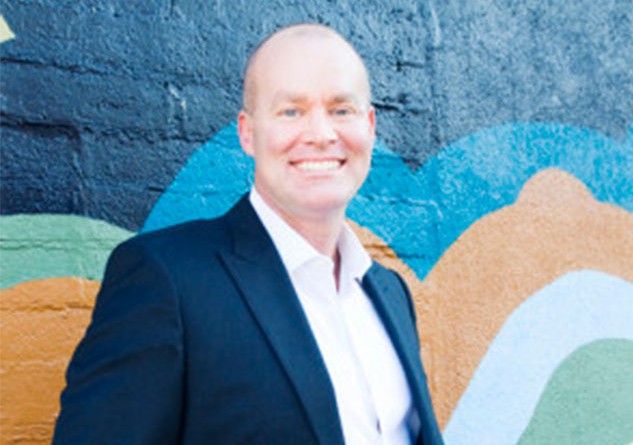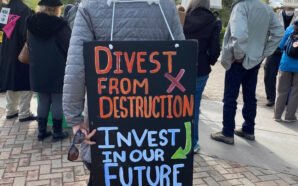Arturo Hilario / El Observador
The essence of Cinequest is of community. Sure business is involved as is the norm with any investment into the arts, but it is the organic community, both local and of the world, that create a place of collaborations and exploration for 2 weeks in downtown San Jose every year. The following is a conversation with Halfdan Hussey, who for the last 26 years has helped lead Cinequest Film Festival in melding innovation and art in Silicon Valley.
Tell me how you became involved with the arts, and how that led to Cinequest.
Well I was a math guy, and my parents expected me to go into mathematics and engineering for a career but I fell in love with reading, movies and film when I was in high school. And when I was in college I shocked my mother, I told her I was going to change my major and go into literature and film and she just about passed out. I studied filmmaking at NYU and made an independent feature film (“He’s Still There”) with my producing partner Kathleen Powell and that’s how I became a part of the film world. This film went on to play at the Venice film festival and there Kathleen and I realized ‘wow’, the experience of a film festival is amazing because people gather from different cultures and walks of life around a common love and then something really really special happens. They empower each other, they meet, they connect, and it’s a really incredible experience. That’s why we wanted to do Cinequest. To give back to other artists and to give to our community something really special. And we picked the Silicon Valley because we wanted to blend the world of technology with that of art and creativity. So my path to Cinequest film started in math, and it ended in the Silicon Valley, which is kind of a wild way to get into the way of film and art.
Was there a moment of realization, or a time in your life that you can recall a definite idea of what Cinequest would represent?
It was a moment that evolved from this experience of having made the film, having gone to a great film festival and then seeing what the Silicon Valley was and saying ‘wow’. We wanted to do this for other people, we want to give to others what we have received and to do it in a special way for this community in the Silicon Valley. A lot of film festivals have the city in their name but we wanted to create a concept that was more global. Not that we don’t love San Jose, we do! I’ve lived here for years and loved the community. We didn’t want to go to LA or another city, we wanted to do it here. And it was the technology partly, but it was also because we loved the community of the Silicon Valley and San Jose, it’s a very diverse and rich mix of people like you find in New York and it really works here. We wanted to call it Cinequest because that would be a term that people from all around the world could associate with. The quest, creating your own vision, utilizing cinema as part of that. That’s why we picked that name and built it here. It’s amazing how it all comes together.
Did you think that it would become as big as it did? Did you envision the other branches to Cinequest, like the Picture the Possibilities (PTP), when you first came up with the idea for Cinequest?
I had a gut feeling that it would get big, even though we were told it was not. Almost everybody that we talked to when we founded Cinequest in the Silicon Valley said it would fail because others had tried similar things and its not an area where you build “culture meets technology”. So we did not receive a lot of people saying ‘this is gonna be great’. There were a couple of people, the Camera cinemas, Dan McFadden with the City and a couple of people that supported us. We had to have our own gut feeling that it would go big. But what we didn’t know was that we would do the PTP for youth, and we didn’t know we would create a studio to produce, distribute and market films. The youth part of of it has been very organic, because as we created Cinequest and built it and it grew, we were naturally doing a lot of mentoring work with college students who would be interns, with classes we were asked to teach etc. We were noticing that we had a particular opportunity to bring to youth the power of creating because we know how to do it ourselves, a lot of our board members know how to do technology and art. We were seeing a lot of similarities in how people create. They take a picture and vision and make it real so we decided to form a complete division that would serve youth, here in the Silicon Valley and around the globe to help them create their dreams. And that, I had no idea we’d do that.
Tell me about Cinequest 2016 and its direction.
Last year we got the acclaim of being the best film festival in the world by USA Today readers and that was awesome, so we took that as a motive to improve, not as a slap on the back in arrogance, but just ‘okay, that’s wonderful, can we not only meet that acclaim but do better than last year?’
So the first thing we did was create a theme that we felt was important. So ‘Unite’ is our theme, which I think has become more and more important as our world has experienced, once again, political issues and terrorists issues and these kind of things that tend to make people divide and to want to go after folks. But instead, Cinequest believes that we’re only as good as we unite, as a global force. Art, cinema and writing have really helped people understand different cultures, ways of life, religions, perspectives, sexual orientation and age groups. It’s one of the really amazing things about a film festival in general, that you can go in and after a period of time access all these perspectives and have an experience that’s not your normal experience. That unto itself will unite you to other people and other ways of life and different thinking. Then we take it one step further since it’s a live event we’re bringing in people from all around the globe, so now we hope they will come to see world premieres, but then they’ll meet each other and they’ll connect and empower and collaborate, build new friendships and forge unity. Which is much more powerful than working on ‘islands’.
With 129 feature and shorts at this years Cinequest, do you have any one in particular that stands out to you personally?
One that jumps out to me when we talk about it is “Remember Me” with Rita Moreno. I think that’s a particularly important event to go see. First of all it’s a very fun film, it’s a comedy and world premiere. Here’s a woman whose now in her mid 80’s who has the youthfulness of a 20 year old. She has won every award known to the entertainment world, Emmy’s, Tony’s, Grammy’s, Academy Awards. More importantly to me, she’s won the American Medal of Freedom, this is an incredible icon of America and she’s the leader of all people but also in particularly she’s a woman of great force. And an incredible Latina leader as well so to see her so vibrant at 85 and to be able to present that film would be my favorite pick of Cinequest.
Finally, reflecting back at the experiences you’ve had at Cinequest, what can you say you’ve learned?
Two things. I’ve always believed the impact you have to measure the quality, it’s not in the numbers. It’s amazing that you can really impact lives if you do something that matters to people and that provides them with a service, an experience. It’s really transformative or uplifting, or empowering. It’s a big thing that we do bringing power to others. But the big thing with the film festival that I’ve learned is the concept of community. When we started I didn’t know anything about community. I was just a young dude who wanted to do this but I didn’t understand what community meant. I remember Chris Esparza (local business owner) a number of years ago told me ‘I absolutely love Cinequest and all the people of our community look so forward to it happening every year’. Something hit me, it isn’t that we make this experience and then we sell tickets and passes and people come and go away. It’s that they own Cinequest. The fabric of our local community and global community. They own and they are Cinequest. It’s an incredibly rewarding thing to see that and to experience it. So when the event happens you see all of these people of different facets coming, that have come before, they can be members of the media, members of the audience, artists, local businesses, and they so look forward to it. They make it happen. To see so many people identify with Cinequest as an important community of their lives has been a breathtaking revelation to me.
Cinequest is here from March 1-13, 2016. More info and tickets at Cinequest.org






